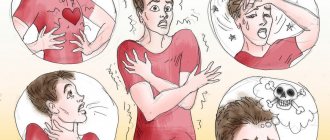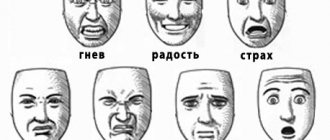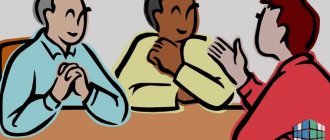.
Stress is the body’s defensive reaction to a difficult, uncomfortable situation. The condition is accompanied by internal tension, increased anxiety and a feeling of fear.
Relieve stress at home
They get rid of stress symptoms through psychoanalysis and techniques that patients perform at home, on the way to work or at the workplace. Folk recipes will help relieve nervous tension: safe tinctures and natural-based products do not cause side effects.
Stress and psycho-emotional tension
Stress is a state consisting of a complex of negative internal processes. Tension is individual moments that arise due to stress factors and entail serious consequences for the further development of a person.
These concepts indicate the psychological state of a person. Psycho-emotional stress causes physical and mental stress, characterized by a partial loss of control: in this state, a person overcomes difficulties without being sure of the result of his actions. Stress is the body’s reaction to factors that, for a number of reasons, the human mind perceives as overwhelming difficulties that cannot be overcome.
Causes of emotional stress
In psychology, it is believed that emotional stress is a psychophysiological state of the body, which consists of a set of emotional experiences caused by various reasons.
Important! Most often, tension begins to manifest itself when a person constantly accumulates within himself and cannot throw out internal experiences from the outside, constantly restraining his emotional manifestations: anger, rage, fear, anxiety. Finding the cause of your worries and eliminating it is the main condition in the fight for your health.
The most common causes of tension have been identified:
- Genetic factors - it is believed that for people who have a melancholic character with weakness of nervous processes, tension can be inherited.
- The emergence and aggravation of emotional stress can be influenced by the social environment. Children are often susceptible to this influence when their parents are overprotective or have excessive demands. A child in a nursery and kindergarten is taught that it is impossible to openly show dissatisfaction, anger, or aggressiveness. They don’t explain how to throw out your emotions. Emotional tightness develops, turning into tension.
- For adults, the cause of tension and stress is difficult life moments: disasters, accidents, illnesses, divorces. Such traumatic shocks begin to cultivate anxiety for one’s life and health, and that of one’s family.
- Modern life is such that people often experience increased stress. Often situations require you to activate the hidden capabilities of the body, but physical activity is not enough for this. A passive lifestyle, sedentary work at a computer (especially for men), and a lack of active training interfere. This disrupts metabolism and leads to imbalance, hence constant tension in the body.
A passive lifestyle weakens the body and makes it difficult to deal with tension in the mind and body.
Types of nervous tension
Nervous excitation is characterized by a load on the central nervous system. In a state of stress, a person does not relax: at night he is tormented by nightmares, and in the morning he feels tired and apathetic. The nervous system does not recover. Mental stress changes the behavior of an individual, making a person aggressive and isolated from others. For convenience, there are two types of extreme mental stress:
- The inhibitory type is expressed in a person’s low adaptation to new conditions, when he cannot adapt to the assigned tasks at work and the requirements in the family. His reactions are inhibited and inadequate in relation to the situation.
- Excessive forms of mental stress (excitable type) are expressed in a change in the behavior of the individual: he withdraws from his usual habitat, becomes withdrawn and uncommunicative. Mental overstrain leads to rapid mood swings. This type of tension is characterized by increased aggression of a person who has experienced severe stress.
- Excessive or prohibitive forms of mental stress arise due to hypermobilization of the body (a person experiences an emotional breakdown).
- Exorbitant forms disrupt coordination of movement. Due to tension, confusion appears and concentration decreases.
Stress, tension, aggression
Symptoms of psycho-emotional problems
Nervous fatigue is reflected in a person’s behavior. His attitude to life, behavior and society changes. Symptoms of nervous tension:
- lethargy;
- apathy;
- inhibition of reactions;
- increased anxiety;
- depression;
- manic behavior (a person is focused on one task).
The symptoms and treatment of nervous tension are similar to stress relief methods. The primary goal is to reduce the level of anxiety and combat the main cause of this condition. Without medications, tension decreases gradually through an increase in a person’s activity and correction of his behavior.
Every symptom of nervous tension is accompanied by exhaustion of the human mind and body. Nutrition is disrupted, muscle tone decreases - the personality literally weakens before our eyes. A sign of problems in the body that arise against the background of mental stress: arrhythmia, hypertension, infectious diseases (malfunctions of the immune system), disturbances in the functioning of the intestines (constipation, diarrhea, increased flatulence).
Signs of stress
The signs of stress, as well as the causes, are different and are divided into several groups, depending on the area in which they manifest themselves.
Physiology: stress-related disorders
Physiological manifestations relate mainly to bodily reactions:
- Headache or dizziness, fainting.
- Sleep problems (drowsiness or insomnia, nightmares).
- Pain of various localizations (pain in internal organs or muscles, joints, spine).
- Fluctuations in blood pressure (hypotension or hypertension).
- Asthmatic and allergic reactions and attacks.
- Gastrointestinal problems: stomach or intestinal disorders, changes in eating habits, nausea.
- Fast weight gain or loss.
- General malaise, feeling overwhelmed, tired, exhausted.
- Decreased vision or hearing.
- Problems with libido.
The list of violations can be extremely extensive.
Emotional Signs
These symptoms are not as noticeable to an outsider as physiological ones. Their brightness and strength depend on a person’s ability to control himself and methods of self-control.
A state of irritability, anger or fear; inability to concentrate and make decisions; apathy, melancholy or depression; “dark” humor or sarcasm - all these symptoms indicate a state of stress.
Changes in behavior
Behavioral responses refer to a person's actions and reactions to events. These include:
- fluctuations in appetite;
- errors while performing usual actions;
- frequent smoking or taking alcohol and drugs.
A slowdown in work or even walking, a reluctance to pay attention to appearance, a loss of neatness are clear signs of nervousness, overexcitation or depression.
Increased conflict in communication, refusal to communicate with loved ones, impulsiveness and too strong a reaction to minor irritants also indicate that the situation is getting out of control.
Intelligence
There are also intellectual signs of stress:
- inability to concentrate or make decisions;
- difficulty concentrating and focusing;
- hesitation in choice, the desire to shift responsibility to someone else.
A state in which all thoughts are focused on the same thing without the possibility of distraction is also considered to be an intellectual consequence of stress.
How to relieve tension
Methods for relieving psychological stress directly depend on the condition of the affected person. Anti-anxiety pills and psychotropic medications are prescribed by a doctor in cases where exercise and regular techniques do not produce positive results. Psychocorrection is a safe technique for adults and children.
Psychological counseling and psychocorrection
The state of mental tension consists of physical reactions that can be learned to control. The method for home use is based on the correction of the body's reactions. Through breathing exercises a person learns to control fear, and exercises against tension help to concentrate.
Proper relaxation technique
The easiest way to relieve tension is to instruct the body to change its external reaction. To relieve stress and nervous tension at home after a working day, you should take a walk in the fresh air.
The benefits of walking
Walking alone with your thoughts allows you to understand the reasons for the current situation and take your mind off the problem. Changing the environment helps you quickly calm down, relax your muscles and reduce overexcitement. It is better to take a walk before bed to relieve mental stress and prevent insomnia.
Exercise to relieve tension
The mental stress associated with overcoming imperfection is expressed in the behavior of the individual. She is tense and complex: her injuries are reflected in a person’s appearance and demeanor. He is stiff, stooped and clumsy. Gymnastics are used to combat internal tensions.
Relieve tension and stress:
- starting position – standing against the wall with your back extended;
- feet shoulder-width apart, arms extended forward (palms pointing down);
- as you exhale, the body slowly pulls upward; as you inhale, the weight of the body is redistributed over the entire foot.
The number of repetitions of the exercise depends on the physical fitness of the person. Psycho-emotional stress due to sudden changes at work or in your personal life is accompanied by panic attacks - this exercise will ease anxiety, and mental stress will disappear within 5-10 minutes.
Alternate body lifts with breath holds. A person needs to stretch out on his toes and tighten his abdominal muscles. As you exhale, the body relaxes and returns to its original position.
How to calm your nerves at home
The third way is to find a hobby at home that will calm you down. Maybe you will cook delicious new dishes. Maybe do some crafts for the soul - knitting, embroidery, modeling, creating toys or jewelry. Even if your hobby may seem childish or naive to someone from the outside, the main thing is that the creative process calms you down and helps you switch gears.
Now many are surprised how our ancestors lived in villages and managed to do everything, endured everything - chopping wood, carrying water, taking care of livestock, repairing the house. It’s just that their internal tension was burned out due to everyday physical labor, and there was no such emotional stress as now.
And if we live in a Khrushchev-era building, a hammer drill is noisy behind the wall or the TV is blaring, and you have nowhere to go after work, then, of course, we will look for how to relieve stress. We would like to go to the park for a walk or find a hobby we like, but we look for salvation on the Internet and social networks. Yes, we will be distracted for a while, but the stress will not go away, we will only get even more tired from the excess of information, and we will still have to return to real life.
If we approach life more consciously and observe what worries us, we will be able to relax and be filled with energy better. It will be easier for us to relieve stress.
You can borrow some simple habits that help you stay alert, healthy, and cope with problems more easily from yogis. The most effective of them can be found in our special manual:
Breathing exercises
To quickly relieve stress or nervous tension, you need to calm your breathing. As a reaction to fear and stress, a person experiences shortness of breath, suffocation, chest pain and uneven breathing. With the help of simple breathing exercises, psychological stress is reduced, and the person returns to a normal state. Breathing exercises are suitable for both men, women and children.
Breathing exercises to relieve tension are easy to remember:
- Starting position – sitting or standing. The person settles into a comfortable position with a straight, elongated back. It is important that the chest is smooth, straightened, and nothing interferes with calm breathing.
- Closing your eyes helps you distance yourself from what is happening around you. The exercise is carried out at home, at work or on public transport.
- The first breath is slow and deep. While inhaling, a person counts to himself to five. The air passes through the lungs, the stomach gradually rounds.
- Exhale slowly. You should exhale gradually, tensing your abdominal muscles, then releasing your lungs. The complex of inhalations and exhalations is like a wave that first fills a person and then releases him.
- You should inhale through your nose and exhale through your mouth.
- Between inhalation and exhalation, hold your breath for a few seconds.
Breathing exercises to relieve stress
A simple pattern of “inhale for 5 counts – hold your breath for 5 seconds – exhale for 5 counts” will help you relax your body and free your mind from anxious thoughts. Repeating the exercise helps to distract attention from the stress factor. Breathing exercises are performed for 10 minutes. The exercise is repeated 2-3 times a day.
Restoring the correct breathing rhythm normalizes a person’s mental state. Before going to bed, this exercise will help you fall asleep quickly and get rid of anxious thoughts.
Equipment for extreme situations
An effective method of relieving psychological stress in conflict situations is emergency measures. They use quick techniques to normalize the state in a stressful situation and to prevent a nervous breakdown. The “Boat” exercise helps a lot with a panic attack.
Starting position – sitting or standing. It is necessary to straighten your back and fold your arms in the shape of a boat (palms connected at chest level, elbows bent). In order to relieve stress and nervous tension, you should monitor your breathing for 3-4 minutes. At the fifth minute its frequency decreases. Calm, measured inhalations alternate with long exhalations. During inhalation, the lips are closed (inhale through the nose). After a few minutes, the body will relax and the mind will calm down.
How to minimize the effects of stress on the body
Despite the fact that stress is harmful to the body, it is necessary in the right doses, as it helps to mobilize strength to solve any problems. However, its excessive amount has a negative effect on a person, leading to tension. To minimize its consequences, you need to learn how to manage stress. Psychologists give the following advice:
- accept for yourself that any life situation is already stressful, you must try to extract the maximum benefit from it;
- if nothing works out today, leave the solution to the problem for later according to the principle “I’ll think about it tomorrow”;
- engage in any breathing practice (yoga, bodyflex) that helps relax muscle tension, calm breathing and reduce the impact of stress;
- harmony around oneself helps to create harmony in the soul: order at home, in affairs, thoughts, body;
- make your life more comfortable and enjoyable through hobbies, communication, sports, travel, books.
The life of a modern person cannot be imagined without external stress and internal tension. This state is natural and even useful, you just need to learn how to manage it, knowing how to relieve emotional stress.
Calming herbs and aromatherapy
You can relieve stress in a relaxed home environment. Soothing tea and essential oils, incense and scented candles will create all the conditions for relaxation of the body.
Herbal infusions that are stored all year round help relieve internal tension. The following herbs are selected as a natural sedative: St. John's wort, oregano, chamomile and motherwort. Dilute the herbal taste of tea with honey, cinnamon or syrup. The composition of the collection is selected individually.
Herbal tea with honey
Getting rid of nervous tension at home is easy if you take baths with pine needles and essential oils once a week. Use 10 drops of oils (orange, cedar and lemon tree) added to a warm bath. This way you can relieve fatigue. After a bath, it is recommended to drink freshly brewed chamomile tea or a decoction with medicinal plants (lemon balm and mint).
The beneficial properties of oils are used to improve blood circulation, in the fight against colds and stress. Incense helps to relax: with the help of an aroma lamp and essential oils you can calm the nervous system. With the help of lavender, geranium and frankincense oil, a woman can relieve severe pain during menstruation (hormonal imbalance causes increased nervousness and psycho-emotional stress).
An easy way to relax
If you don’t want to go anywhere and are too lazy to do anything, there is an even easier and simpler way to relieve fatigue and tension - working with water.
Try taking a contrast shower, alternating hot and cold water. After that, sit down and observe yourself: did it excite you or calm you down? If you get agitated, then this practice is not very suitable for you to relieve stress. Then you better take, for example, a warm bath with salt. Pour a pack of ordinary salt into the bath, lie down for 10-15 minutes, massage your neck and shoulders, the points of the thoracic region where the ribs attach to the sternum.
It is very important to relieve tension from your legs. If you can't take a shower or bath, at least wash your feet. Wash each leg from the knee to the foot for some time (no more than a minute) with cold water, and then rub thoroughly with a towel. After some time, blood will flow there. This relieves tension and fatigue well.
Prolonged stress
The result of increased excitability (symptoms: irritability, apathy, confusion) is prolonged stress. A person has a headache, tremors in the limbs, joint pain, body aches - psycho-emotional problems lead to pathologies.
The attending physician prescribes medications that relieve physical symptoms. Psychoanalysis and work on lifestyle helps the individual get rid of stress and its consequences. The danger of a prolonged stressful state lies in the disruption of the central nervous system.
Mental disorders manifest themselves in people who have not struggled with constant emotional stress.
Symptoms
The first signals of the onset of overstrain are rapid fatigue and decreased performance. Nervous overstrain determines behavior: men become hot-tempered, give out excessively aggressive reactions, women are more whiny and irritable. The phrases are heard: “I’m tired, I need emotional relief.” In hopeless situations with unrelenting pressure from negative factors, a nervous breakdown and eating disorders are possible: bulimia nervosa, anorexia nervosa. Even the immune system begins to fail during nervous overstrain: the risk of contracting a viral infection increases.
Common symptoms that indicate a problem are rapid heartbeat, increased sweating, tremors in the limbs, and anxiety. In addition, if you don’t know how to relax and fall asleep, it’s probably time to relieve nervous tension.
The right rhythm of life
You can avoid taking stress-inducing drugs if you plan your daily routine, create the right diet and take care of the health of your body. Remedies for stress cause drowsiness and affect human behavior, and folk remedies for stress are not dangerous. Useful habits developed while working on thinking and behavior will prevent stress in the future.
Sports activities
The following will help relieve internal tension:
- playing sports;
- new hobbies;
- trips out of town;
- new acquaintances and meetings;
- timely rest.
Working on your own thinking saves you from stress - the attitudes by which a person lives create his reactions. Stress resistance is developed through self-education and self-knowledge. If a person knows the cause of fear, he is not afraid of the future, he is not afraid of the unknown.
The daily routine is a balanced day, during which the body has time to rest and get the necessary load. The culture of food consumption allows you to get rid of such manifestations of stress as overeating or starvation.
Physical exercise
The ability to withstand stress is tantamount to the ability to control the body's spontaneous reactions. A tense body cannot relax and resist stress and its consequences. Physical activity is used to harden the body: running in the morning or in the evening before bed helps. While running, a person clears the mind and allows the body to release accumulated tension.
You can overcome stress if you cultivate resilience in the face of problems. Working on your body improves self-esteem. Development motivates an individual to new achievements, and group classes allow you to make promising acquaintances. Relieving stress through yoga is based on a combination of meditative techniques and physical exercise. A person learns to look at the world, people and the causes of stress differently. Relaxation is the key to harmony and well-being.
Finding new hobbies
Interests and hobbies are the foundation of a developing personality. The basis of art therapy (one of the best methods of dealing with prolonged stress) is the disclosure of a person, his fears and anxieties through art. Figures, compositions, paintings reveal the true traumas of the individual. Through art therapy, old emotional wounds can be soothed. A person who knows himself is not afraid of the world around him.
New activities bring impressions and positive emotions. Positive experiences save you from stress. They switch the personality away from the problem and make the experience less significant.
Rest and relaxation
Lack of rest ends in emotional burnout. The personality loses motivation and weakens. The less time a person devotes to rest, the more susceptible he is to external influence. Rest consists of distracted activities: picnics, going to the cinema, communicating with loved ones. Such activities give the body the necessary respite.
Relaxation is aimed at revealing the true desires of the individual. Away from work and family responsibilities, she can make the right decisions. A change of place is a signal of calm for the body.











